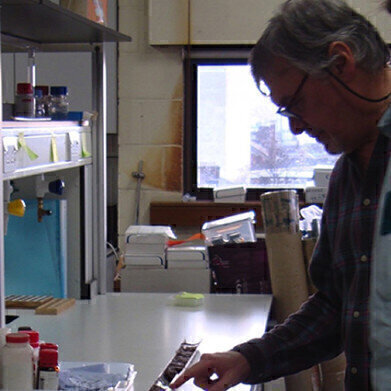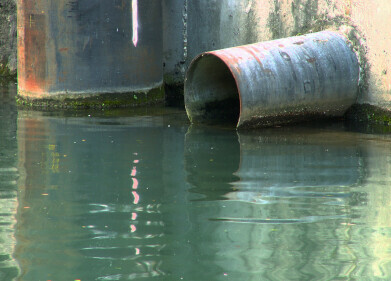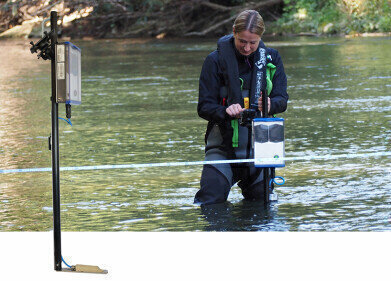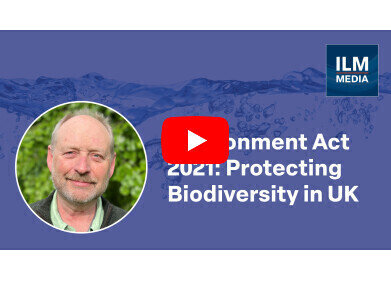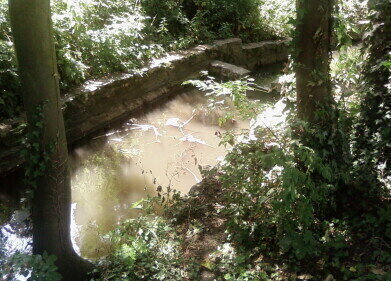River Water monitoring
Research shows tyre particles contaminate our rivers and oceans
Jun 21 2020
A major UK government funded study suggests particles released from vehicle tyres could be a significant and previously largely unrecorded source of microplastics in the marine environment.
Dr Geoff Abbott of Newcastle University UK’s School of Natural and Environmental Sciences has developed a breakthrough method using mass spectrometry to detect tyre-derived microplastics in the environment.
Dr Abbott’s method was used to estimate the contribution of tyre particles in this environmental study led by Professor Richard Thompson OBE FRS, Head of the International Marine Litter Research Unit at the University of Plymouth, and Newcastle University alumnus, and researchers Dr Imogen Napper and Florence Parker-Jurd. Collaborators Dr Stephanie Wright at Kings College, London and Simon Hann of Eunomia Research & Consulting Ltd also contributed to the study.
The study is one of the first worldwide to identify tyre particles as a major and additional source of microplastics. Scientists have previously discovered microplastics, originating from microbeads in cosmetics and the degradation of larger items such as carrier bags and plastic bottles, in marine environments globally - from the deep seas to the Arctic.
Dr Abbott, Reader in Organic Geochemistry, said: “Synthetic rubber, a plastic polymer, is a major component of tyres today. Tyre wear is therefore potentially a major contributor to microplastic pollution in the marine environment. We detected characteristic vulcanisation accelerators used in the production of tyre rubber by identification using a combination of gas chromatography and mass spectrometry following depolymerisation of the microplastics using a process known as pyrolysis”.
This Defra-funded study now reveals vital new information that will improve our scientific understanding of how tiny particles from tyres, synthetic fibres from clothing and maritime gear also enter the ocean.
It shows that tyre particles can be transported directly to the ocean through the atmosphere, or carried by rainwater into rivers and sewers, where it can pass through the water treatment process. Researchers estimate this could place around 100 million m² of the UK’s river network – and more than 50 million m² of estuarine and coastal waters – at risk of contamination by tyre particles.
Tyre particles were detected via atmospheric deposition as far as 50 metres from the nearest roads, and were greater beside motorways than beside roads in rural or urban environments.
Domestic Marine Minister, Rebecca Pow, said: “Reducing plastic pollution in the ocean is one of the greatest environmental challenges that we face. This study will help us face that challenge by identifying areas for future research, such as changes to roadside drainage and textile design. The UK is at the forefront of a global fight against the scourge of plastics. In addition to the pioneering ban on microbeads and the 5p plastic bag charge, plans are also in place to end the sale of plastic straws, stirrers and plastic-stemmed cotton buds.”
Professor Richard Thompson OBE FRS, added: “Scientists have long suspected that tyre debris is posing a hidden threat to the marine environment. However, there have been few studies measuring abundance in aquatic environments. Now we have a clearer indication on quantities we need to gain a better understanding on transport in the environment and the potential impacts on marine life. This study gives us a real insight into the importance of tyre wear as a source of microplastics. However there are still many unknowns, and compared to other forms of microplastics we know relatively little about tyre wear particles. So it is important to continue to take steps to reduce emissions of better understood sources like fibres from textiles and the fragmentation of larger items.”
This project will be used to guide future research already underway on marine plastic pollution and the impact of human activities on the marine environment, as the Government continues in its fight against the scourge of plastics. This includes the 5p plastic bag charge - which has led to 15 billion fewer bags distributed – and plans to end the sale of plastic straws and stirrers and plastic-stemmed cotton buds later this year.
Digital Edition
IET 34.2 March 2024
April 2024
Gas Detection - Biogas batch fermentation system for laboratory use with automatic gas analysis in real time Water/Wastewater - Upcycling sensors for sustainable nature management - Prist...
View all digital editions
Events
Apr 30 2024 Melbourne, Australia
Apr 30 2024 Birmingham, UK
May 03 2024 Seoul, South Korea
May 05 2024 Seville, Spain
May 06 2024 Minneapolis, MN, USA
